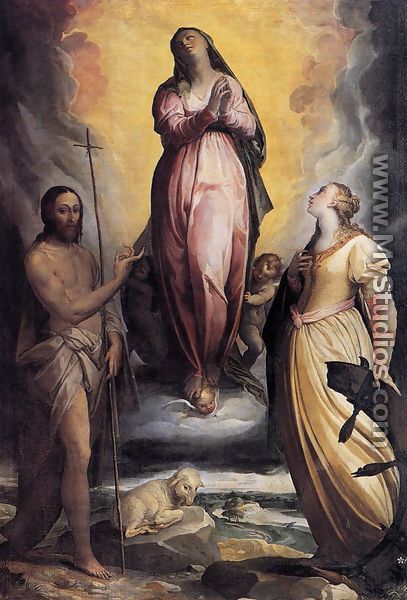Three years ago, I knew nothing about Korea. Alright, maybe I knew that my father had served there after the Korean War where he got reprimanded for putting up bridge-ties for telephone poles. And I also knew a little about Kim Jong Il, the strange, troll-haired demi-god of communist North Korea. But I knew almost nothing about the history of the country itself.
Now, amazingly, I know much more about Korea and have developed a true appreciation and sympathy for that small country and its rich history. No, I did not take a course, nor did I become best friends with a Korean history professor. I have American television to thank for this unexpected educational epiphany.
Of course, I’m being a bit tongue-in-cheek here. I’m guessing that most who read this column will readily agree that American TV is a vast intellectual and moral wasteland, fit for neither man nor beast. When it’s not assaulting you with endlessly regurgitated double entendres, or using action dramas as a vehicle to preach an obnoxious political message, it’s attempting to yank at your heartstrings with some syrupy human-interest story using real people as props to enhance the brand profile of some soulless mega-corporation. And that’s just the commercial networks. PBS is little more than a self-referential lobbying outfit whose programming seems wholly geared toward convincing people that everything on the planet will perish if we don’t give national and international governing bodies more power.
Before we go on, I have a confession to make. I grew up a TV addict in the 1970s and 80s. My TV viewing only took a hit after the birth of my first child in 2002 when I belatedly figured out that it probably wasn’t the best idea to expose such an innocent soul to the endless stream of sex jokes that makes up the standard prime-time fare. Now, we watch hardly any TV at all in our house. We do still watch sporting events, but even then, I sit there wielding the remote in the attack position, lest I find myself fending off questions like, “Dad, what is Cialis and why are those two old people sitting in bathtubs outside?”
But the point of this essay is less to lament the pathetic state of American entertainment than to laud something that is produced in east Asia that’s not made of cheap plastic—historical dramas from South Korea. When I first stumbled across one of these dramas on a small, independent US TV network (sandwiched awkwardly in between the Greek Hour and a talking-head program featuring very manly-looking women), I figured it was nothing more than a rehash of the corn-ball kung-fu theater of my youth. However, the endorsement of a friend made me curious and sure enough, after watching two episodes of a drama called
Dae Joyoung, I was hooked. Soon after, my wife was hooked as well.
 |
| Prow of a Korean turtle ship. |
Hard as it may be to believe, costume historical drama is popular in Korea. They run in series of 30+ episodes. The most successful ones, such as
The Immortal Yi Soon Shin about Korea’s legendary 16th century admiral and his turtle ships, can run over 120 episodes. Though they are called “dramas”, I’m not talking about soap operas. These programs are written and produced to appeal to both men and women, and as such, there is always an element of romance. But this is nothing like the cheesy Hollyweird “romance” we have come to expect in most Western entertainment which is generally a half-step from pornography. Modesty is assumed. Courtesy is mandatory, even between mortal enemies. Old-fashioned courtly romance is the order of the day.
Did I mention the fighting? One thing I discovered from watching these series is that Korean history is a bit like Irish history: that of a small, independent-minded nation forever struggling under the thumb of a nearby hegemon. Because of this, I suppose, their historical dramas tend to emphasize the heroic—the weak versus the strong, battles against impossible odds, civil war, political intrigue, foreign meddling, betrayal, and self-sacrifice. The heroes are portrayed as virtuous, complex, witty, intelligent, and noble. They are also usually brilliant fighters and martial arts play a prominent role. But before you roll your eyes, remember that production values in the East have come a long way from the “Your karate is good but now you must die!” schlock of the 1970s. The action sequences are beautifully choreographed and shot using magnificent sets, costume, lighting and sound.
What’s more, nearly every series has at least one classic buffoon in it to provide comic relief.
In general, the writing is tremendous. The storylines are original, unpredictable, and endlessly fascinating. The characters are somewhat archetypal, but they are entertaining and endearing archetypes that translate well for Western audiences. The acting seems superb, though the fact that I don’t speak Korean might give the actors a bit more gravitas than they actually have.
Of course, in order to enjoy one of these dramas, you’ll have to put up with a few things:
1.
Subtitles. Most of the time, the subtitles are unobtrusive and well done. Occasionally you run into a series where it seems the translation was done by the same guy who wrote the owner’s manual for your 1985 Hyundai Excel.
2.
Eunuchs and Concubines and Courtesans. Yes, Eastern civilization approved of some practices that were traditionally frowned upon in the West before our public morals got sucked into the sewer. All three of these character types appear with regularity in Korean historical dramas because all three played prominent roles in Korean history. Despite this, the overall moral tone of the dramas is very high in the best Confucian sense, emphasizing filial piety, generosity, loyalty to country, clan, or patron, benevolence in leadership, and equality of opportunity for all regardless of social class.
3. Goofy Korean pop music. The love ballads with vocals that most of these dramas feature are occasionally bearable, occasionally silly. However, the instrumental incidental music is almost always outstanding. In the best cases, it is a beautifully balanced mix of Eastern and Western music that will stick with you for a long time. If you want to get an idea of the quality of the instrumental music, have a listen at my
Korean Drama playlist on YouTube.
4. Internet TV. In terms of quality and ease of access, Internet TV has come a long way—maybe too long as there are now commercials embedded into these videos on most free services. That said, there are still the occasional hiccups having to do with network availabilty and odd copyright issues. If you make the mistake of starting a series on a site that has pirated the videos, don’t be surprised if the series gets yanked when you’re halfway through.
 |
Saint Andrew Kim Taegon,
the first Korean Catholic
priest. He was martyred in
1846 at the age of 25. |
5. No reference to Christianity. The spirituality in the shows is generally Confucian with a sprinkling of Buddhism. While religion doesn’t normally play a huge role, the dramas we have watched so far have been respectful to spirituality—those characters who despise “the mandate of Heaven” are always portrayed as evil. Only one drama dealt with Catholicism at all—
Yi San, which was set in the late 18th century. Catholicism was outlawed at the time, but the benevolent king Jeongjo (the main character) was kind to the Korean Catholics whom he admired for their work with the poor. The main antagonist in the show, queen dowager Jeongsun, would go down in history as the one responsible for the “Beheading Mountain” Martyrs and the Korean Catholic Persecution of 1801—an event I knew nothing about until I watched this series.
A little curious maybe? Well, if you want to give one of these dramas a shot, I recommend
Gye Baek to start with. It’s a shorter one—only 30 episodes—so it’s not a major investment of time if you get drawn in.
Gye Baek and several other of these dramas may be found for free (with commercials) on
www.crunchyroll.com, a website which specializes in TV series from east Asia.
 |
Official portrait of King
Jeongjo of Joseon. The drama
Yi San is based on his
childhood and rise to the throne. |
Having watched several of these dramas from beginning to end, I can’t help but wonder what American culture would be like today if our entertainment industry produced similar epic work about Christian historical heroes. Imagine if there were unapologetic Catholics in Hollywood who made programs which celebrated the traditional Christian virtues without the miserable post-modern angst and moral vacuity that plagues most secular entertainment. Imagine if our kids grew up watching fascinating historical dramas about Constantine or Charles Martel or Saint Louis IX instead of tawdry sit-coms or cartoons laden with secular propaganda. How different things might be if historical men of courage and faith were our children’s heroes rather than effeminate minstrels and thuggish ball-players.
At the very least, our kids would know where they came from and would have a better appreciation for the glorious patrimony which has been handed down to them. And it might actually begin to trouble them when they see their leaders and peers squandering that patrimony so frivolously.
This article appears in the June 2012 issue of
Catholic Men's Quarterly.











































